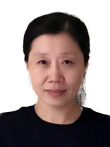报告人:加拿大工程研究院院士Yang Shi(施阳)教授、“科睿唯安(Clarivate Analytics)”ESI全球高被引科学家徐玲教授、山东省“泰山学者”特聘教授丁锋教授
报告时间:2022年6月8日星期三13:00(北京时间)
报告地点:线上腾讯会议:696-768-120
主办单位:自动化与电子工程学院
报告简介:
【报告一】A Robust Distributed Model Predictive Control Framework for Consensus of Multi-Agent SystemsWith Varying Delays and Input Constraints
报告人:Yang Shi, Professor, IEEE Fellow, ASME, CSME, University of Victoria (加拿大维多利亚大学),Fellow of EIC(加拿大工程研究院院士)
报告摘要:
In the past two decades, much research effort has been devoted to the distributed coordination of the multi-agent systems (MAS) since it finds broad applications in numerous areas such as connected vehicles, smart grids, and sensor networks. As one of the fundamental control problems for the MAS, consensus requires that all agents achieve an agreement of common interest based on the local and neighboring information. Nonetheless, reaching consensus becomes more challenging when the MASs are subject to constraints and varying communication delays in real-world applications. In this talk, the consensus problem of a general linear discrete-time MAS with input constraints and bounded time-varying communication delays will be discussed, anda robust distributed model predictive control (DMPC) framework for consensus, integrating the offline consensus design with online DMPC optimization to exploit their respective advantages, will be proposed. Specifically, each agent is equipped with an offline consensus protocol depending on its immediate neighbors' estimated states. Then, the estimation errors propagated over time due to inexact neighboring information are proved bounded under some mild assumptions. Further, a robust DMPC strategy is deliberately designed to achieve robust consensus while satisfying input constraints. It is theoretically shown that, with the suitably designed cost function and constraints, the feasibility of the associated optimization problem can be recursively ensured. We further provide the consensus convergence result of the constrained MAS in the presence of bounded varying delays. Simulations examples illustrate the effectiveness of the developed method. Yang Shi received the Ph.D. degree in electrical and computer engineering from the University of Alberta, Edmonton, AB, Canada, in 2005. From 2005 to 2009, he was an Assistant Professor and Associate Professor in the Department of Mechanical Engineering, University of Saskatchewan, Saskatoon, Saskatchewan, Canada. In 2009, he joined the University of Victoria, and now he is a Professor in the Department of Mechanical Engineering, University of Victoria, Victoria, British Columbia, Canada. His current research interests include networked and distributed systems, model predictive control (MPC), cyber-physical systems (CPS), robotics and mechatronics, navigation and control of autonomous systems (AUV and UAV), and energy system applications.
报告人简介:

Dr. Shi received the University of Saskatchewan Student Union Teaching Excellence Award in 2007. At the University of Victoria, he received the Faculty of Engineering Teaching Excellence in 2012, and the Craigdarroch Silver Medal for Excellence in Research in 2015. He received the JSPS Invitation Fellowship (short-term), and was a Visiting Professor at the University of Tokyo during Nov-Dec 2013. His co-authored paper was awarded the 2017 IEEE Transactions on Fuzzy Systems Outstanding Paper Award. He received the Humboldt Research Fellowship for Experienced Researchers in 2018. He is a member of the IEEE IES Administrative Committee during 2017-2019, and the founding Vice Chair of IEEE IES Technical Committee on Industrial Cyber-Physical Systems. Currently, he is Co-Editor-in-Chief for IEEE Transactions on Industrial Electronics; he also serves as Associate Editor for Automatica, IEEE Trans. Automatic Control, IEEE Trans. Cybernetics, etc. He is a Fellow of IEEE, ASME and CSME, and a registered Professional Engineer in British Columbia, Canada. He is a Fellow of Engineering Institute of Canada (EIC).
施阳博士,1998年于西北工业大学获得博士学位;2005年于加拿大阿尔伯塔大学获得电子与计算机工程博士学位。2005-2009在加拿大萨斯喀彻温大学任助理教授及副教授;目前为加拿大维多利亚大学机械工程系终身教授。施阳博士的研究集中于工业信息物理系统、网络及分布式控制系统、模型预测控制、机电系统及机器人系统设计与控制、能源系统的优化调度与控制等。
2007获得加拿大萨斯喀彻温大学十佳教学奖;2012年获得维多利亚大学工学院最佳教学奖。2015年获得维多利亚大学年度唯一的最佳研究银奖(Craigdarroch Silver Medal);2013年获得日本学术振兴会特邀访问教授奖;2017年获得德国洪堡研究基金。与学生合著的论文获得2017年IEEE Transactions on Fuzzy Systems年度最佳论文奖。目前任IEEE工业电子学会工业信息物理系统技术委员会主席,担任IEEE Transactions on Industrial Electronics的共同主编(Co-Editor-in-Chief),任多家国际期刊的副编辑,包括Automatica, IEEE Transactions on Automatic Control, IEEE Transactions on Cybernetics等。
施阳教授是加拿大工程研究院Fellow (Fellow of Engineering Institute of Canada)、IEEE Fellow(国际电子电器工程师协会)、ASME Fellow(美国机械工程师协会)和CSME Fellow(加拿大机械工程师协会)。
【报告二】基本优化方法与系统辨识
报告摘要:
优化方法是系统辨识研究中的一个重要工具。本报告介绍一些基本优化方法及其原理,从系统辨识方法和算法研究的角度,讲解优化方法在辨识方法研究中的作用和算法开发的过程,以及系统辨识创新性研究的基本思想,为研究生学习和研究系统辨识提供帮助。
报告人简介:

徐玲,江南大学博士、博士后,无锡商业职业技术学院教授。
2016年入选江苏省高校“青蓝工程”优秀青年骨干教师。
2018年入选江苏省“333高层次人才工程”第五期第三层次培养对象。
2019年入选“青蓝工程”中青年学术带头人培养对象。
2019年入选“科睿唯安(Clarivate Analytics)”ESI全球高被引科学家。
2021年江苏省高校优秀科技创新团队负责人。
2021年无锡市“职教名师工坊”教学名师。
近五年,主持国家自然科学基金面上项目1项,省级科研项目5项。2021年度获得江苏省高等学校科学技术研究成果奖一等奖,2019年度获得江苏省科学技术自然科学奖三等奖。指导学生获得“互联网+”创新创业大赛省级一等奖,全国职业技能大赛二等、“挑战杯”大学生课外科技作品大赛省级二等奖等10余项奖项。近五年第一作者发表SCI论文18篇,其中7篇为ESI高被引论文,授权专利11项。
【报告三】系统辨识的新思想、理论、原理与方法
报告摘要:
事物的运动规律用方程描述就是数学模型。数学模型是自然科学科学的基础,当今控制科学与自动化的发展离不开数学模型。系统辨识是研究建立系统数学模型的理论与方法。本报告简要介绍系统辨识的一些最新研究进展,包括辅助模型辨识思想、多新息辨识理论、递阶辨识原理、耦合辨识概念、滤波辨识理念等,以及科学思想产生的根源与科学创新的源泉。
报告人简介:
丁锋,湖北广水人,清华大学博士,加拿大University of Alberta博士后、研究员,欧洲杯买球官网“泰山学者”特聘教授,江南大学“至善教授”。主持完成了多项国家自然科学基金项目,获得多项省部级科技奖励。他提出和创立了辅助模型辨识思想、多新息辨识理论、递阶辨识原理、耦合辨识概念、滤波辨识理念等,自2011年在《南京信息工程大学学报》和《欧洲杯买球官网学报》开启了“系统辨识”科学论文连载的新篇章,出版了我国首部“系统辨识”专著《系统辨识新论》、《现代控制理论》,正在出版《系统辨识学术专著丛书》9部。
学习与研究阅历:
(1)清华大学硕士、博士、工作14年。
(2)在加拿大3所大学University of Alberta, Carleton University, Ryerson University作博士后、研究员、访问教授累计5年多。
(3)2004年江南大学“太湖学者”特聘教授、“控制科学与工程”博士点责任教授。
(4)2008年入选江苏省“青蓝工程”中青年学术带头人。
(5)2013-2018年山东省“泰山学者”特聘教授(欧洲杯买球官网)。
(6)2014—2016年湖北省“楚天学者”讲座教授(湖北工业大学)。
(7)2020年江南大学“至善教授”。
主要学术贡献与荣誉:
(1)发表SCI论文300余篇,被SCI期刊他引14000余次,其中ESI高被引论文35篇。
(2)入选2014、2015、2016年汤森路透和2017、2018年科睿唯安ESI全球高被引科学家(工程,数学)。
(3)2014至今连续8年入选“Most Cited Chinese Researchers”中国高被引研究者(控制和系统工程)。
(4)入选2019年“全球顶尖前10万科学家”,中国排名50。
(5)入选2021年“全球顶尖前10万科学家”,全球排名2871,中国排名175,“控制科学与工程”排名第3。
(6)丁锋. 现代控制理论. 北京: 清华大学出版社, 2018. 65.1万字。
(7)出版《系统辨识学术专著丛书》5部:
丁锋. 系统辨识新论. 北京: 科学出版社, 2013. 65.3万字。
丁锋. 系统辨识――辨识方法性能分析. 科学出版社, 2014. 80万字。
丁锋. 系统辨识――辅助模型辨识思想与方法. 科学出版社, 2017. 60万字。
丁锋. 系统辨识――迭代搜索原理与辨识方法.科学出版社, 2018. 63.9万字。
丁锋. 系统辨识――多新息辨识理论与方法. 科学出版社, 2016. 65万字。